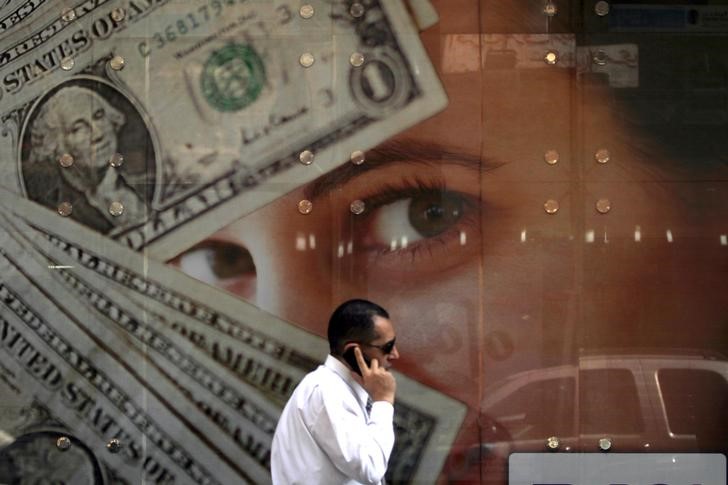Investing.com - The dollar rose sharply against its rivals Friday, as rising global trade tensions spurred demand for the greenback.
The U.S. dollar index, which measures the greenback against a trade-weighted basket of six major currencies, rose by 0.45% to 95.07.
Concerns over a global trade war came to the fore Friday, as President Donald Trump rejected the proposal from the EU to eliminate tariffs on cars if the U.S. did the same, claiming the offer is "not good enough."
Weaker-than-expected eurozone inflation data piled on the pressure in the euro, leaving the single currency on course to post a monthly loss.
EUR/USD fell 0.65% to $1.1590.
The Canadian dollar had trade issues of its own to contend with, as traders fretted the outcome of U.S.-Canada trade efforts to renegotiation the North American Free Trade Agreement (NAFTA).
USD/CAD rose 0.60% to C$1.3063.
"We're looking for a good deal, not just any deal," Canadian Foreign Minister Chrystia Freeland said. "And we'll only agree to a deal that is a good deal for Canada."
Trump set a Friday deadline for Canada to sign a new agreement with the U.S. and Mexico. But the Toronto Star reported that Trump said in an off-the-record briefing he was not prepared to give any concessions.
Fears over a full-blown global trade war also come as reports surfaced that the Trump was considering moving ahead with tariffs on $200 billion worth of goods from China.
U.S. economic data showing an improvement in consumer sentiment had little sway on market direction.
The University of Michigan index was 96.2 in August, above both a previous reading of 95.3, and economists' expectations for a reading of 95.5.
A weaker pound, meanwhile, also kept the dollar on track for a monthly gain as Brexit-related uncertainty continued to weigh.
GBP/USD fell 0.40% to $1.2963.
"A thaw in the stalemate between the U.K. and the EU over the U.K.'s plan to leave the bloc is unlikely and sterling is likely to keep falling," said forex specialist ACLS Global.
USD/JPY rose 0.01% to Y111.00 as concerns over global trade tensions triggered demand for safe-haven yen.
